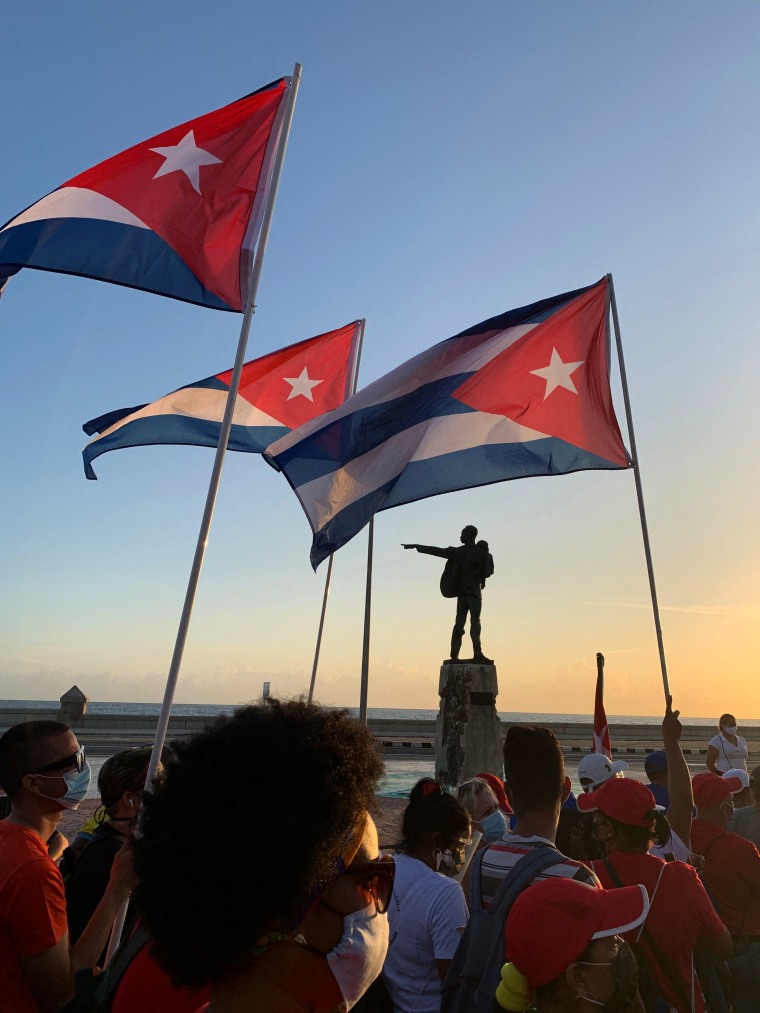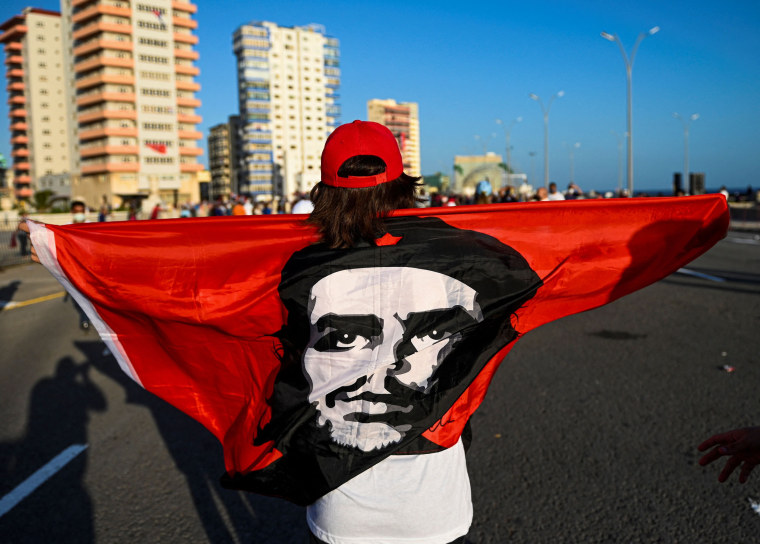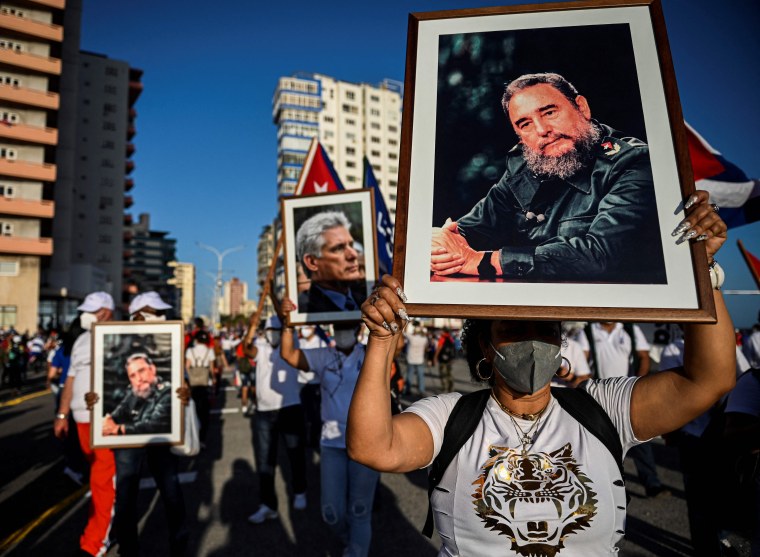The historic and spontaneous protests that rocked Cuba on July 11 took the communist government — and the international community — by surprise in terms of their intensity and numbers.
Many analysts concur there probably won’t be any immediate changes to the country’s one-party communist rule. But experts said it’s a watershed moment that marks a “before” and “after" the protests — and they have put an enormous amount of pressure on the government to speed up reforms.
While people across Cuba protested shortages of food and medicine amid a higher number of Covid-19 cases, rising prices due to inflation and hourslong power outages, many also chanted “libertad” (freedom) and “We want change,” while holding signs that read, “Down with the dictatorship.”
In a country like Cuba where the government has significant control over many aspects of life, including industries, wages, imports and prices of goods, it’s all intertwined.
Independent journalist Yoani Sánchez tweeted, “We were so hungry, we ate our fear.”
Were the protests significant enough to change the country’s one-party political system?
“I think some caution is in order,” said Michael Bustamante, an assistant professor of Latin American history at Florida International University.
He said what was remarkable about the protests was that they could not have been predicted and they were decentralized in the way they unfolded.
“It wasn’t called for by the opposition, let alone the government. It just kind of happened,” Bustamante said. “I think that supposes real challenges if you wanted to channel this into something. How do you do that?”
Arturo López-Levy, a former analyst with Cuba’s Interior Ministry and assistant professor at Holy Names University, said he does not expect any major political changes in the short term. But he added that the protests do put pressure on the government “to make economic changes and to liberalize the politics within the one-party system.”
In other words, López-Levy said, it could open the door for more than one candidate to run within their one-party system by allowing an independent candidate to run, similar to how Iran allows moderate and conservative candidates to run in their elections.
Other changes could potentially include transferring responsibilities from the central government to the provinces and requiring authorities to identify where arrested people are taken, something that was approved in the 2019 constitution that authorities are not currently complying with.
The protests rattled the government. Raúl Castro — the 90-year-old brother of the late Fidel Castro who recently retired as head of the Communist Party — emerged from retirement to attend a mass government rally. President Miguel Díaz-Canel went as far as to take some blame for the current crisis, but only after he called on government supporters to go out and fight during the protests. The call to combat further riled many Cubans. Cuba’s government has repeatedly blamed the U.S. government’s decades-old economic embargo as a catalyst for the conditions and shortages that have led to the historic protests.
The harsh response against the protesters by police and civilian supporters armed with sticks has drawn international condemnation from the United Nations, governments and rights groups in a way not seen in years.

After more than 60 years of revolution and U.S. sanctions, Cuba’s buildings are crumbling and at times collapsing, and over 60 percent of the food is imported. This year, the island produced the lowest amount of sugar, an export the island used to rely on heavily, since 1908.
For years, Cubans seeking a better life immigrated to other countries. But for the first time, Cubans, particularly younger generations, are seeking change inside Cuba, putting a level of pressure on the government not seen before in communist Cuba, and it comes at a time when there are no Castros in power.
“I don’t know how many times in my life I have heard the prediction that this [communism] is coming to an end,” said former Cuban diplomat Jesús Arboleya, a professor at the University of Havana.
He said no one can deny there is significant opposition in Cuba.
“The problem is finding a way to channel those discrepancies or that opposition through better channels,” he said.
People have drawn comparisons between Cuba’s protests and demonstrations that erupted in Venezuela and Nicaragua, close allies of the Caribbean island. Venezuela has a more organized opposition with a leader, Juan Guaidó, and they’ve held massive, sustained protests in past years. During 2018 anti-government protests in Nicaragua, President Daniel Ortega’s government responded violently with force.
In both cases, scores were killed, and the leaders still have a firm grip on power.

“What’s different about the protests in Cuba by comparison to those in Venezuela and Nicaragua is that Cubans have been operating in a closed and repressive system for decades,” said Paul J. Angelo, a fellow for Latin American studies at the Council on Foreign Relations.
In other Latin American countries, protest movements have been common and recurring since the countries transitioned to authoritarian rule.
“Just as democratization processes across Latin America followed different paths and responded to different internal and external inducements during the 1980s and 1990s,” Angelo said, “so too will the democratization processes of the 2020s — if we can achieve them.”
Analysts agree the Cuban government will speed up economic reforms — such as more foreign investment — that had been promised by then-President Raúl Castro but not fully implemented. How far these reforms go and whether they include political changes could depend on whether demonstrators keep the pressure and momentum that stunned so many on July 11.
Follow NBC Latino on Facebook, Twitter and Instagram.

